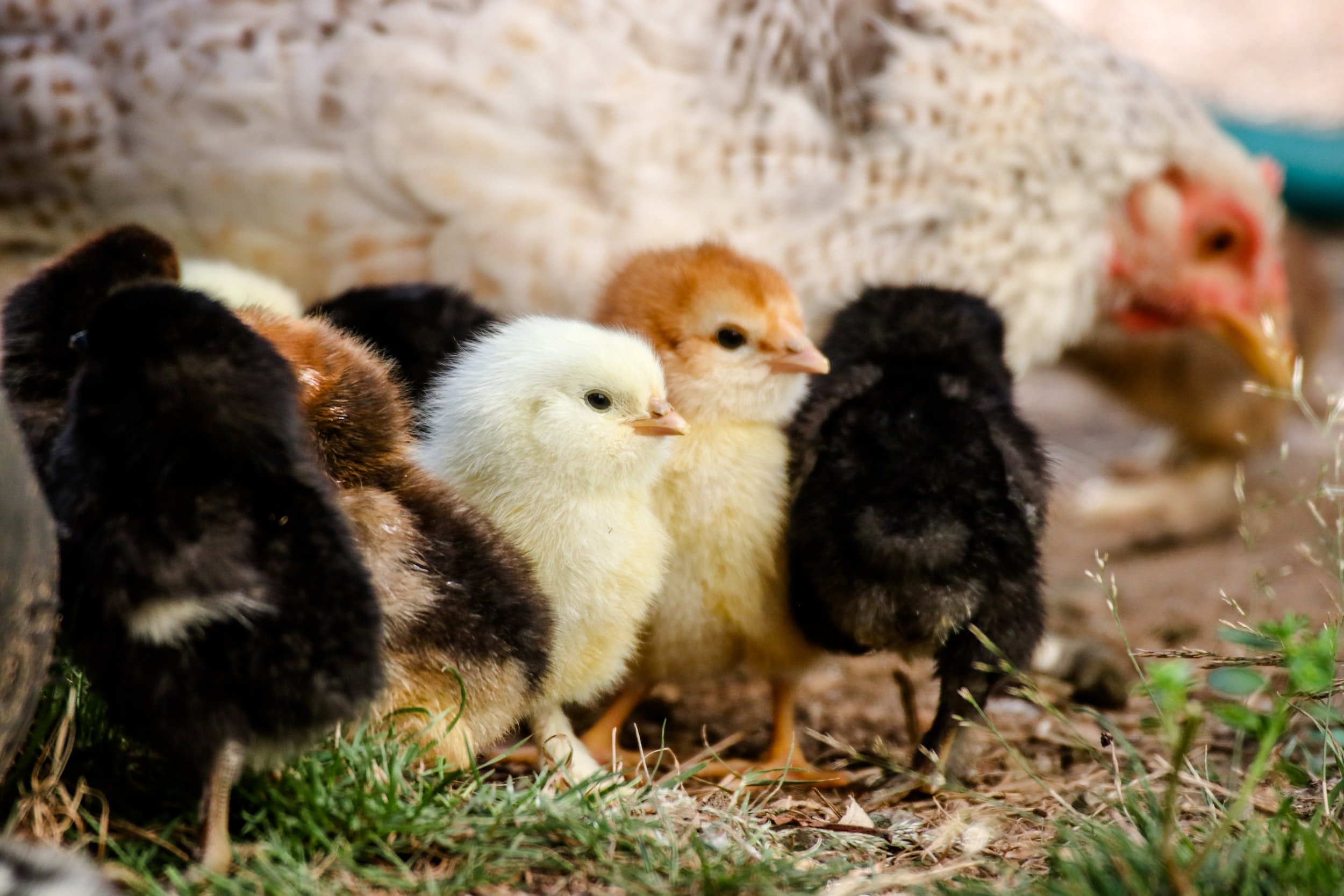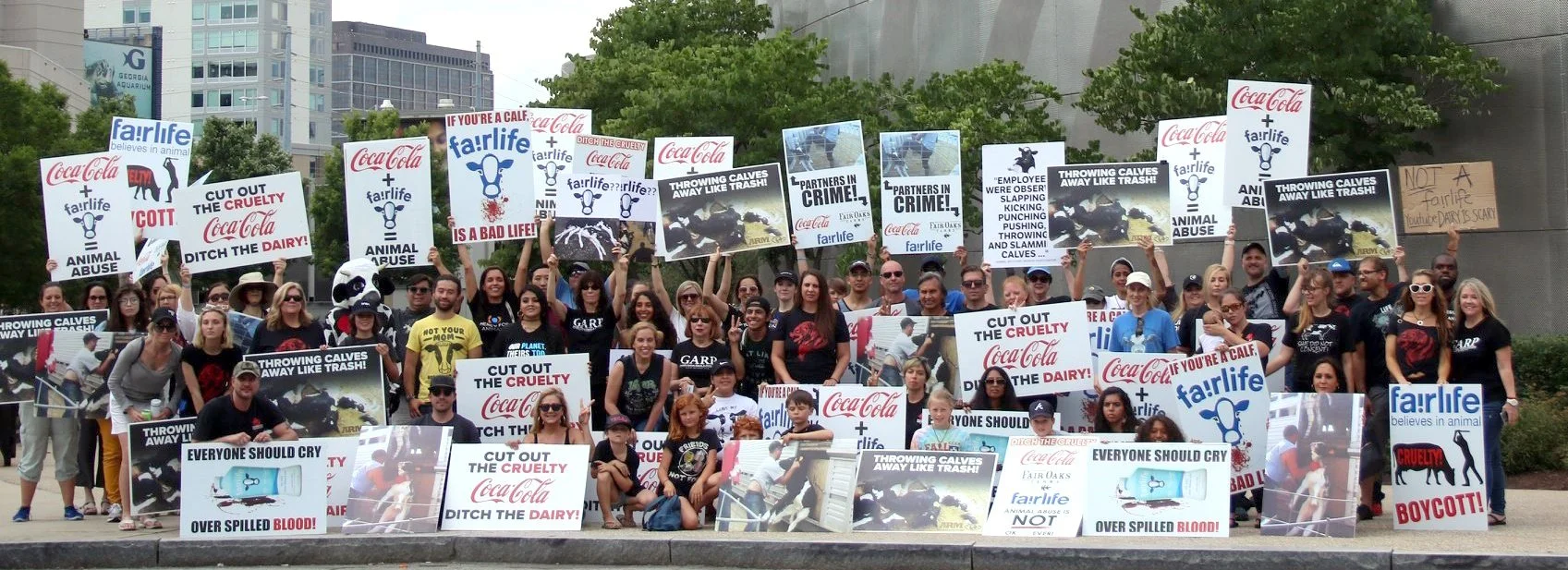
About us
What We Do
Legislation
GARP, often collectively with other organizations, works on Georgia State Legislation to defeat cruel bills and pass bills to benefit animals.
GARP victories include defeating brutal hunting and trapping bills, defeating efforts by puppy mill industry to pass legislation to prevent Georgia’s cities and counties from passing laws to prevent puppy mill dogs from being sold in stores, and defeating persistent, deep pocketed efforts to legalize horse racing in Georgia.
Education
GARP does vegan outreach at festivals and parades such as the Gay Pride Parade and Inman Park Parade, handing out thousands of Vegan Starter Kit magazines. It is fun and very effective outreach.
GARP’s Atlanta carriage horse display showing photos of living conditions and working conditions of Atlanta carriage horses. In Atlanta, there is no enforcement of codes for horse-drawn carriages. Horses are kept in dark windowless concrete building and muddy lots with no shelter, and forced to pull carriages with open wounds, missing shoes, and other violations. Learn more about Atlanta carriage horses here.
GARP’s educational display showing screenshots from Born To Be Free, a documentary about Georgia Aquarium’s brutal and illegal capture of 18 wild belugas from Russia’s Sea of Sea of Okhotsk. GA Aquarium spent $10 million on the capture process and held the belugas in small tanks for years while fighting in court to import them, which, if they succeeded, would have overturned 20 years of U.S. marine mammal protection.
Four of the belugas died while being held captive in tiny pens while GA Aquarium fought to overturn U.S. protection laws, and the remaining were sold to marine parks in China and Japan. Five of the beluga whales that Georgia Aquarium brutally ripped from their home in the sea were stillnursing their mothers at the time of the capture, and that population is now officially deemed depleted.
Funded by Farm Animal Rights Movement’s “Pay Per View” program, GARP has shown From Farm to Fridge to hundreds of festival attendees. Costumes are great attention grabbers, and it’s incredible to see the impact a four-minute video about the meat and dairy industry has on viewers. Often, people who watched it find us years later at another festival and share how they stopped eating animals after witnessing what happens at slaughterhouses.
GARP circus protests. Animals are not ours to use for entertainment.
GARP at the Georgia Aquarium
GARP booth at Atlanta VegFest
Action
GARP and One Protest joined forces to protest Fairlife and Coca-Cola (who partners with Fairlife) following an investigation by Animal Recovery Mission showing horrific abuse of cows and calves at FairOaks Farms, a major supplier to Fairlife.
Coca-Cola and other parties agreed to pay $21 million to settle lawsuits for falsely advertising their Fairlife ultra-filtered milk came from humanely treated cows. The settlement received preliminary approval by an Illinois federal judge on April 27, 2022.
After being chased around an arena, children, teens, and young adults would pile on top of the terrified piglets with their full body weight. Pigs suffered emotionally and physically as they were body-slammed to the ground, and their limbs, ears, and tails were yanked, bent backward, and twisted by the frenzied crowd. GARP documented the event workers slamming the pigsdown, slapping them, and spitting on them in front of the crowd.
The Barnesville Grease-Pig Chase was a 45-year annual tradition in Barnesville, GA. After being tipped off about the event by a concerned citizen, GARP took video documentation. For hours, one by one, terrified piglets are brought into an arena and thrust toward mobs of screaming children who run after them, grabbing and clawing to try to be the first one to "claim" the pig.
After 115,000 signatures on GARP’s petition, 12,000 views of the video, and thousands of calls to the Barnesville Chamber of Commerce, the 45-year event was ended.
GARP members blocked off the front entrance at Emory University during a protest urging Emory University to release a chimpanzee named Wenka to sanctuary. Wenka was taken from her mother on the day of her birth and kept in total darkness for the first 17 months of her life. Emory continued using her in research for her entire life. This protest is on Wenka’s 58th birthday.
Lab workers stated that Wenka suffered from extreme dissociation from the trauma of her many years held in a held in a concrete and steel cage at Emory’s laboratory. GARP’s campaign to release Wenka to sanctuary received national media coverage. The ask was simple, allow Wenka to experience some kindness and comfort in her old age, but Emory stonewalled.
Wonderful chimpanzee sanctuaries stepped up and were willing to take Wenka and provide for her for the rest of her life, but it is likely that Emory was afraid to allow the public to see what poor mental and physical condition Wenka was in.
Wenka died in Emory’s prison after enduring a life of torture.
Emory National Primate Research Center located in Atlanta used 1,485 nonhuman primates in experiments in 2020. An additional 2,270 nonhuman primates were imprisoned at the facility for other purposes, including breeding. Emory also has thousands of rodents and other animals used for experiments.
The Animal Welfare Act offers only minimal protection to some research animals, although mice, rats, birds, reptiles, and amphibians are not protected by the law at all. Even animals who are covered by the law can be burned, shocked, poisoned, isolated, starved, forcibly restrained, addicted to drugs, and brain-damaged—no procedures or experiments, regardless of how trivial or painful they may be, are prohibited by law.
Experimenters at Emory use monkeys in addiction studies and in experiments to cause extreme psychological distress, include subjecting infant monkeys to maternal abuse and neglect to study the impact of this early-life stress on their “enhanced vulnerability to the reinforcing effects of cocaine.” In other experiments, an Emory researcher cut lesions in monkeys’ brains and tied them to restraint chairs while using severe stress to induce and then measure cognitive deficits. Emory University has also racked up dozens of additional violations of federal animal welfare guidelines. Federal inspection reports document that the suffering of animals at Emory has been exacerbated by extreme negligence.
Monkeys have died from starvation, strangulation, suffocation, heatstroke, asphyxiation from their own vomit, self-mutilation, being scalded to death after a cage was placed in an automated washer with the animal remaining inside, trauma and shock, and sepsis. Mice and rats have died from starvation or dehydration, and living mice were found in a freezer intended for dead animals. In 2021, Emory received $479.5 million of tax dollars from the National Institutes of Health. Even with hundreds of millions of dollars in funding, Emory can’t manage to comply with minimal standards of animal welfare. Read more about the Emory National Primate Center here and here and here.
Many people never have the opportunity to get to know animals who are farmed for their meat. GARP's hands-on volunteer work days allow participants to experience the beauty of animals who have been lucky enough to make it to a farm sanctuary where they are treated with compassion and can live their lives free of harm.
Hands-on days benefit farm animal sanctuaries tremendously by providing free help with projects like painting, cleaning stalls, feeding animals, building enclosures, setting up gardens, and much more.
GARP volunteers typically work for four hours, break for lunch to chat and get to know each other, and then hang out with the animals to feed them donated fruits and vegetables. It is always rewarding to see how much a group of dedicated people can accomplish in one day and it’s a wonderful way to spend time with the animals.
GARP Media Coverage
Horse carrying tourist carriage collapses
Georgia Animal Rights and Protection made an alarming discovery, one that serves as another unnecessary reminder of the widespread neglect, suffering, and death in the pet trade industry
Man seen on viral video kicking cat like a football sentenced to jail
Teens Chase And Tackle Terrified Piglets In Bizarre Festival
State investigates illegal sale of baby chicks at North Georgia State Fair
Injured Beluga at the GA Aquarium Is Proof That Captivity Hurts Whales
These 5 Aquariums Are Just As Bad As SeaWorld



















